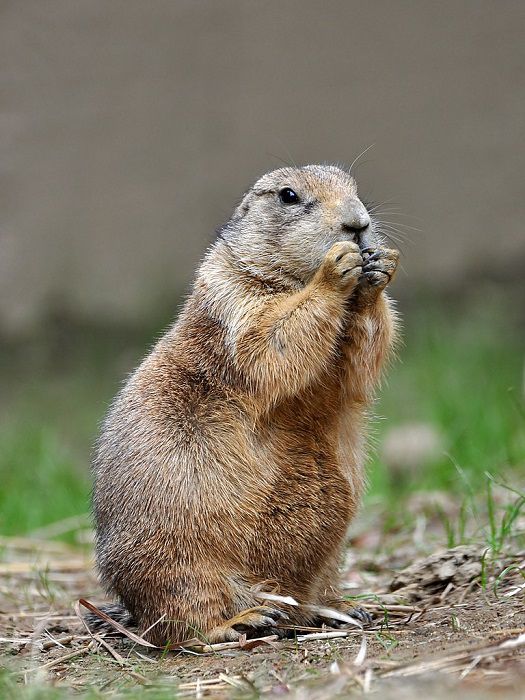Table of Contents
Most people think of cats or dogs when considering a family pet, but there are plenty of others who want a more exotic pet. And for those who would rather not have a reptile or an arachnid, there are animals such as prairie dogs. But do prairie dogs make good pets? This is a question repeatedly asked by would-be owners. We try to offer some advice on this question in the below paragraphs.
What are Prairie Dogs and Where do They Come From?
Despite the name, prairie dogs are not dogs at all – they are rodents that hail from the Great Plains of the United States. These sociable animals live in colonies in grasslands in these areas and feed on the grass, plants, and leaves of these regions.
are not dogs at all – they are rodents that hail from the Great Plains of the United States. These sociable animals live in colonies in grasslands in these areas and feed on the grass, plants, and leaves of these regions.
Due to their sociable nature, anyone considering getting such an animal as a pet will need to provide plenty of stimulation and socialization to prevent them from becoming aggressive. Prairie dogs can make good pets as they can be very affectionate but getting them to this point means dedicating hours of attention every day – at least initially.
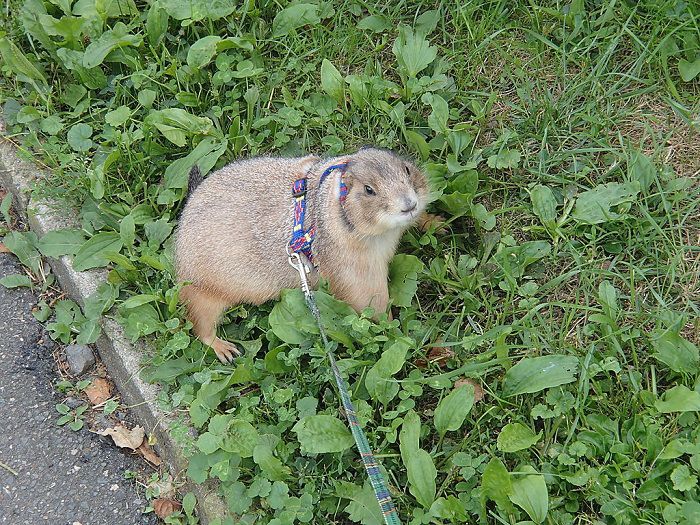
Prairie Dog as Pet 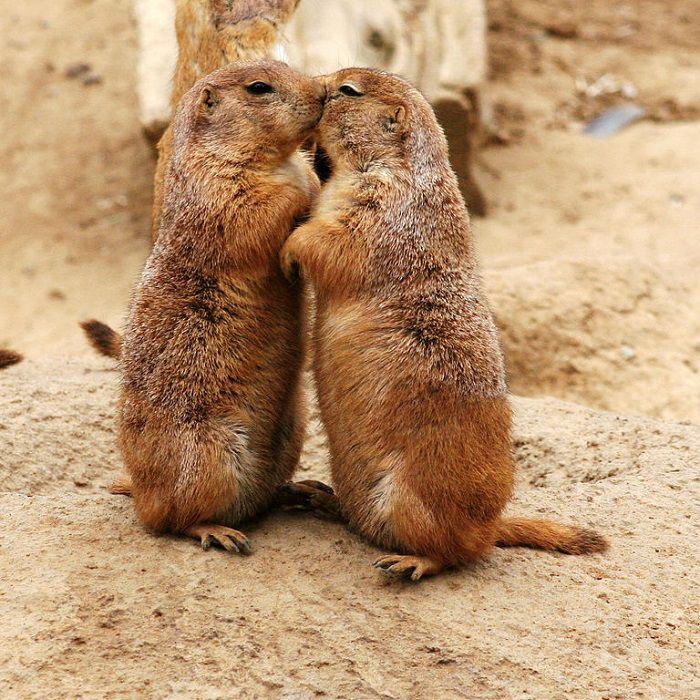
A Pair of Prairie Dogs 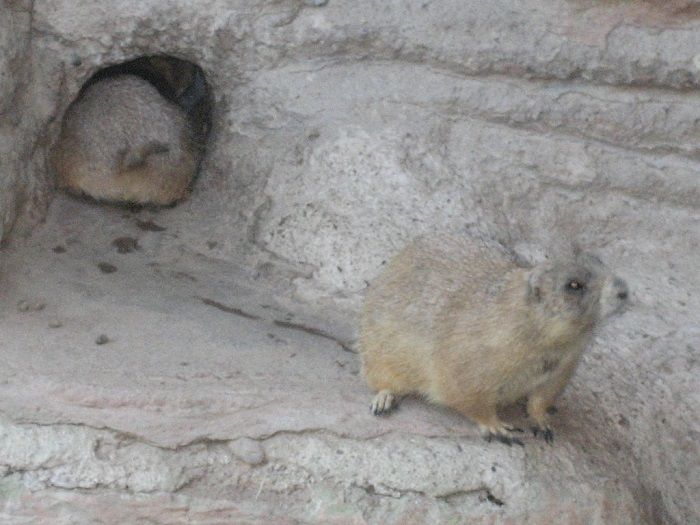
Prairie Dog in a Zoo
Keeping Prairie Dogs as Pets
It is difficult to replicate the natural habitat of a prairie dog in captivity. In the wild, they forage for food and spend much of their time burrowing through soils to do so. They are active animals so if kept as pets will require plenty of space to exercise.
Housing
In terms of housing, it is best to have an enclosure that offers a burrowing space as well as room for running about. Ideally you would have a two-floor cage with a sand box that they can dig in. Make sure the enclosure is not placed in direct sunlight and be sure to provide plenty of chew toys.
Prairie dogs do not like to be left alone, so if you are going to be at work during the day, it is probably best to get more than one as a pet so that they can give company to each other. If you want to keep two males, make sure they have been neutered as they can become aggressive towards each other otherwise. More than one female can be kept together without problems, but if you are going to have both male and female prairie dogs living together, the male will need to be neutered or you could end up with lots of baby prairie dogs!
Female prairie dogs typically have between two and ten pups per litter and will become sexually mature between the ages of two and three. They have a 35-40-day gestation period. When pregnant and when nursing, the female can become quite aggressive towards other prairie dogs, so it is advisable to separate them during this time.
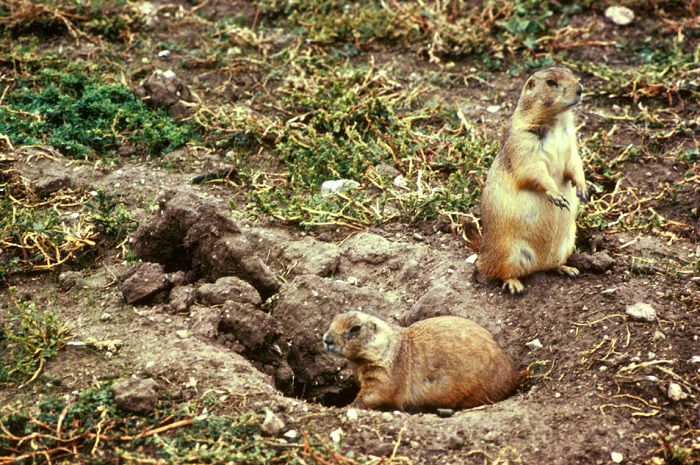
Prairie Dogs at Burrow Entrance 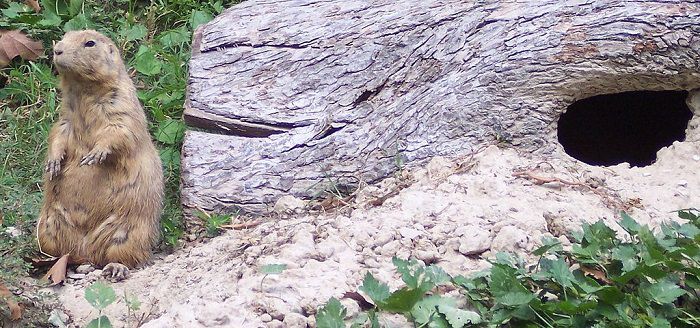
A Prairie Dog and His Hole 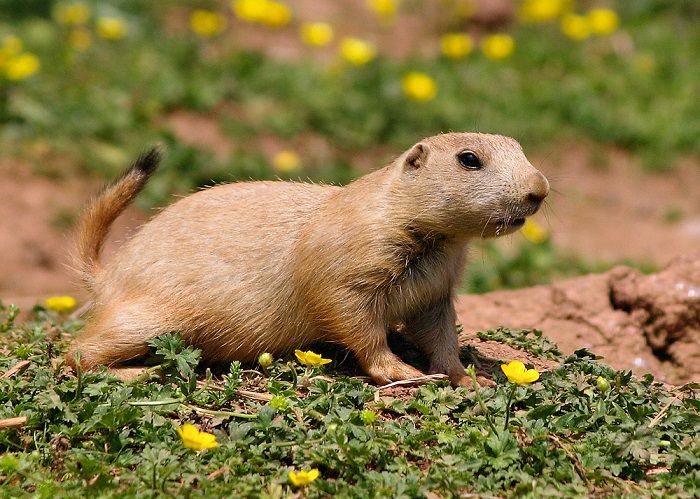
Prairie Dog – Paignton Zoo, UK
Temperature
Unlike many other exotic pets, prairie dogs do not require artificial heating and should be comfortable at room temperature (around 70F). It is important, however, to avoid temperature extremes. If your pet becomes too hot, it could suffer heat stroke; if the temperature drops too low, it may become sluggish and lethargic.
Diet
As mentioned above, prairie dogs in the wild eat grass, leaves, and plants. They require a lot of roughage in their diet due to a digestive system designed for hindgut fermentation. In captivity, prairie dogs will need high fiber pellets as well as hay, grasses, and fresh fruits and vegetables. Timothy hay is an appropriate choice for prairie dogs as it provides them with the opportunity for chewing, which they need to prevent their teeth from growing too long.
As prairie dogs like to graze throughout the day, it is important to ensure that food is always available. You will also need to provide water for your prairie dog. In the wild, these animals get most of their hydration from the prickly pear cactus plant. You can grow these plants yourself or you can provide water in a bottle with a tube and roller ball, similar to those used for other pets such as rabbits, mice, or hamsters.
Although treats such as dried fruit can be given occasionally, these should make up no more of your pet’s diet as too much can lead to diet related health problems. Most illnesses suffered by prairie dogs are diet induced. Common health problems include parasites, obesity, respiratory disease, and dental disease.
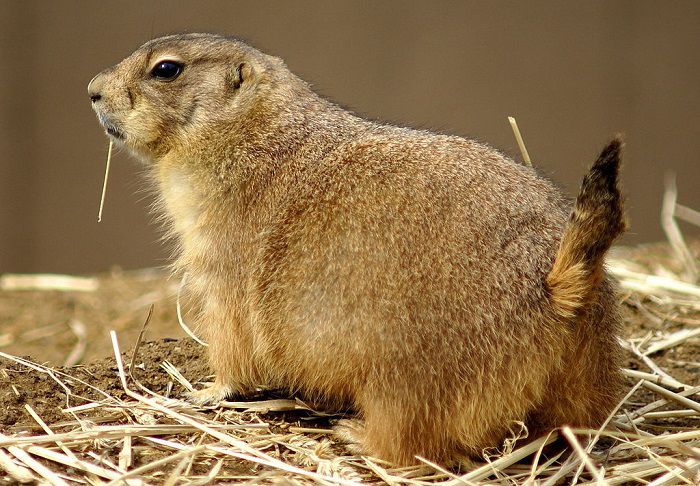
Black-Tailed Prairie Dog Foraging 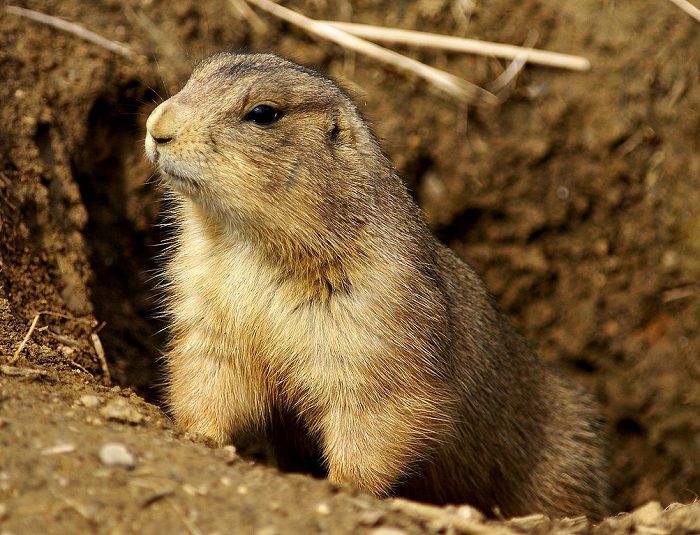
Prairie Dog at Burrow Entrance 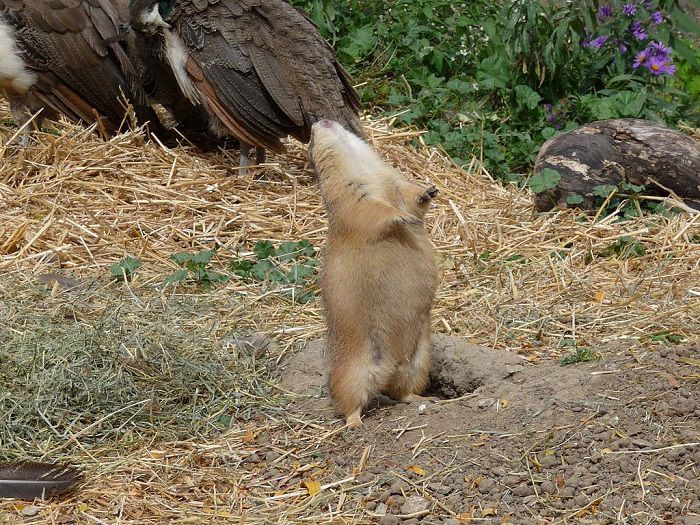
Prairie Dog Calling
Conclusion
If you have a lot of time to spend with a pet prairie dog, then they can make great pets. As they are used to living in colonies in the wild, they do not like to be alone. If you cannot spend a lot of time with your pet, it is probably best to get more than one.
Prairie dogs are exotic pets with complex needs. They require a specific diet and a lot of love and attention. Nevertheless, with the right care they can become lovable and affectionate. They can also be leash-trained with a harness designed specifically for prairie dogs. Amazon has a great selection of these. You can click here to find out more.
to find out more.
One last thing to note though, prairie dogs cannot be sent to boarding kennels when you go on vacation. So if you are going away, you will need someone to come to your home to provide food and water.
Before you consider getting a prairie dog, know that these animals have complex needs and require plenty of attention every day.
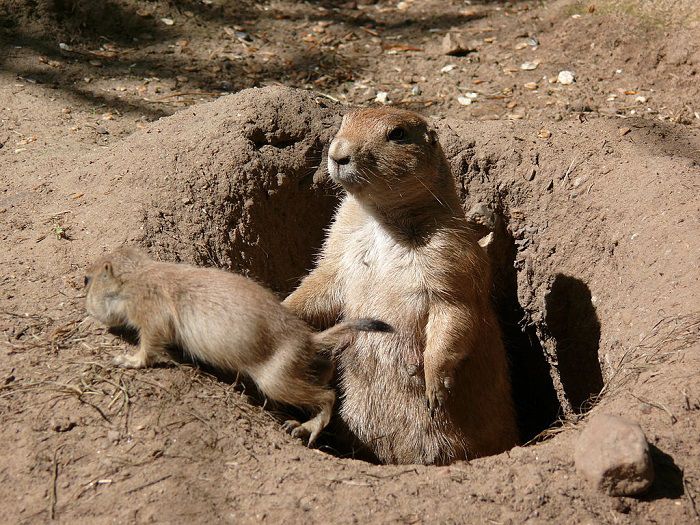
Female Prairie Dog with Juvenile 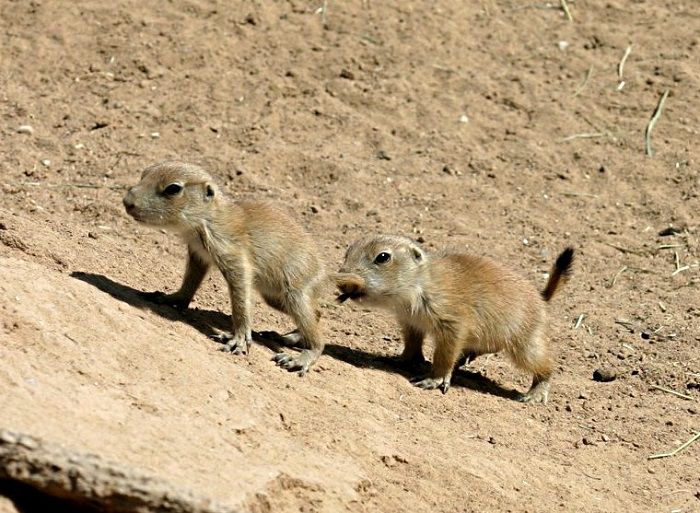
Juvenile Prairie Dogs 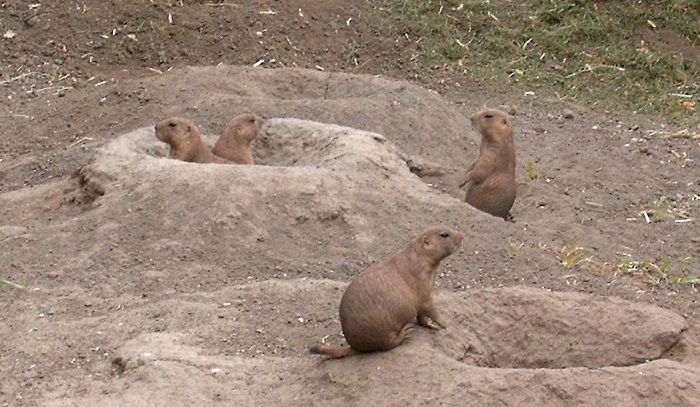
Prairie Dog Family
Below are a couple of videos that you might find useful:
Photo Credits:
- Featured Image (Black-Tailed Prairie Dog): Joe Ravi
 – CC BY-SA 3.0
– CC BY-SA 3.0
- Prairie Dog as Pet: Nazgul03
 – CC BY 2.0
– CC BY 2.0
- A Pair of Prairie Dogs: Brocken Inaglory
 – CC BY-SA 3.0
– CC BY-SA 3.0
- Prairie Dog in a Zoo: Twowells
 – CC BY-SA 3.0
– CC BY-SA 3.0
- Prairie Dogs at Burrow Entrance: Curtis J. Carley
 – public domain
– public domain - A Prairie Dog and His Hole: Sidious1701
 – public domain
– public domain - Prairie Dog – Paignton Zoo, UK: Steve Polkinghorne – CC BY 2.0

- Black-Tailed Prairie Dog Foraging: Aaron Siirila
 – CC BY-SA 2.5
– CC BY-SA 2.5
- Prairie Dog at Burrow Entrance: Asiir
 – CC BY-SA 2.5
– CC BY-SA 2.5
- Prairie Dog Calling: Milojacks – CC BY-SA 3.0

- Female Prairie Dog with Juvenile: Gunnar Ries – CC BY-SA 2.5

- Juvenile Prairie Dogs: Cburnett
 – CC BY-SA 3.0
– CC BY-SA 3.0
- Prairie Dog Family: Mathae
 (assumed) – CC BY-SA 3.0
(assumed) – CC BY-SA 3.0

